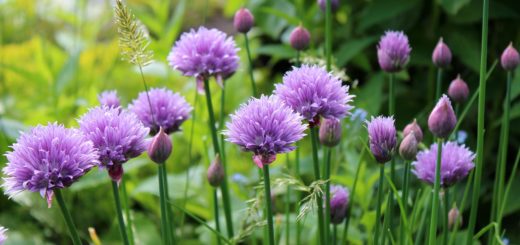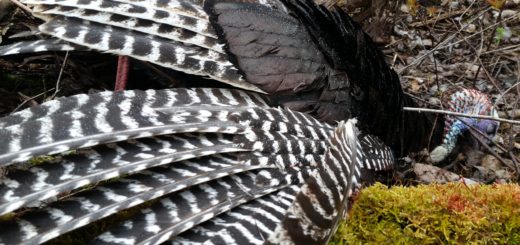Introduction to Solo Camping
I love camping alone. Camping with friends and family is great, but there is something about being deep into some real wilderness by myself that I find immensely fulfilling. Here is a few of the reasons why I like to strike out on my own, and some basic solo camping tips that will help get you started in your journey towards outdoor independence.
Why go camping solo?
The biggest reason for me is time. We all lead busy lives and, as a musician, most of my free leisure time does not line up with your typical weekend/long weekend structure. The days when I have time off can be very sporadic. Often, last minute gigs will pop up, which is not conducive to long term planning. For that reason, I’ll occasionally find myself on Sunday with the next three days off. Why not jump in the car and head up to the woods? I don’t need to call my buddy and see if he also has the next few days off, I don’t need to go and borrow a bunch of camping gear that I don’t own. I just head to the store, get some provisions, somehow justify to my wife that I need to sleep in the woods for three days, and then hit the road. It is very freeing to not have to rely on another person’s schedule for your recreation time. It also helps to have a very understanding spouse.
You learn how to really camp. At first, that may seem a little ridiculous. Learn how to camp? What is there to learn about sleeping in the woods for a few days? Consider this: would you be comfortable hiking several kilometers from your car, involving a few kilometers of trailblazing through thick bush, navigating to point you’ve picked on a map, setting up camp for three days with an array of tarps knots and guy lines, and making campfires despite incessant rain? There are plenty of skills involved. The difference between pulling up to a preset campsite with your car with your buddies and packing fifty pounds of gear into deep bush for a few days is pretty stark. I have learned many key skills camping solo. Everything from navigation, to learning the knots needed to properly set up a tarp, to getting a campfire going with wet materials.
You learn a lot about yourself, and what kind of person you are. It is generally accepted as a good idea to do things that stretch your boundaries and take you outside of your comfort zone. Hiking kilometers into the Canadian bush by yourself and sleeping alone for a few nights is enough to make the majority of people scared to death, let alone uncomfortable. You are also rewarded with an abundance of time to relax, think or do whatever it is you do when you find yourself with no other humans to interact with. A whole day to yourself is a lot of time, and when separated from modern distractions, a whole day is an awful lot longer than you thought.
When should I go camping?
In my opinion, the friendliest time of year for the beginner camper is late summer bordering on early fall or more specifically, September. The bugs have receded, the lakes are still warm. A campfire is nice to sit next to at night. Some of the leaves are starting to turn, and the fishing is good.
Here’s a quick rundown of the seasons: Spring is generally wet or buggy, often both. The mosquitoes and black flies in the Canadian bush are thick and merciless. Spring rains can be torrential and leave you soaked and cold. Summer can be buggy as well, and the heat can make for many a sweaty uncomfortable night, although that makes the lakes seem all the more inviting. During October into late Fall the cold starts to set in. The lakes are less inviting and the moose begin to rut. For those who don’t know, a bull moose in rut can be one of the most dangerous animals in the northern woods. Winter isa whole different beast requiring more specialized equipment and skills.
What gear do I need?
One great thing about camping solo is that you really learn what equipment you need and what items you just planned on relying on your buddy to bring. After a few solo trips, you get to be the guy that everybody borrows gear off of. Consider it a badge of honor.
You can go about this two ways – run to your nearest outdoor supplier and dump a boatload of cash, or you can troll through used listings and backpacking forums for second hand things. For most of my gear, I went the used route and have been extremely happy.
To go into detail on every piece of gear would be a whole article in itself (and we will post that article soon), but here is an outline:
- Small Single Person Shelter. A one man tent or some of the new expedition style hammocks are good.
- Sleeping Bag. Generally pick one that goes 5 degrees colder than the coldest temp you expect (historical temperature/rainfall averages can be found online)
- Sleeping Pad. Most of your heat is lost through conduction to the ground. A closed cell foam pad (not a yoga mat) or an inflatable will do the trick.
- Multi-tool. Something with a knife, a saw, screwdrivers, etc.
- Cook-Set+Stove. I like pots I can cook on a campfire with (no plastic parts) and I use the stove as a backup.
- Fire Starting Implements. One is none, two is one, three is good. I carry a jet lighter, and two fire-steels as well as some tinder in a dry pouch.
- Extra tarp. It is a God-send to have a 8×10 cheap-o tarp to use as a cook shelter. It gives you an extra place to hang out other than in your tent during a rain, a place cook and have a campfire underneath and a place to keep your firewood dry.
- Cordage. Lots of it. I probably have over one hundred feet all in different lengths that I carry with me. Can’t set up an extra tarp without guy lines. The uses are endless. Carry it, learn how to wrap it properly and learn some knots. Taut-line hitch, clove hitch, bowline is a good start.
- Water Purification. Tablets, pumps, UV, boiling. There are lots of options.
- Navigation Implements. Compass, Maps GPS, etc.
- Change of clothes. I have 2 sets – my day clothes which are fast drying synthetic material that can get wet, and my night clothes which are kept dry at all costs. They are warmer woolens, great for sitting next to a campfire.
Remember; start small. Don’t plan on a week long trek into the backcountry on your first solo outing. Find a chunk of Crown land, and set up a camp 100 meters from your car on the first night. Or just test out your gear in the backyard. Next time, try going half a kilometer into the bush. You’ll quickly learn what you know, and what you need to work on. And you’ll quickly learn what gear you like, and what you don’t. Successfully setting up tarps can be a huge pain in the butt the first time you try it. As you gain experience, try to get out in different seasons and weather conditions to get a feel for the challenges of each. You will come out with a renewed sense of independence and be a stronger individual because of it. Just keep in mind, that ninety percent of the time, the scariest thing in the woods is yourself.




Great info man. I think the most challenging thing is the solitude. You suddenly become very aware of how rarely you are completely alone.
I think you’re totally right about that – something a lot of people don’t expect